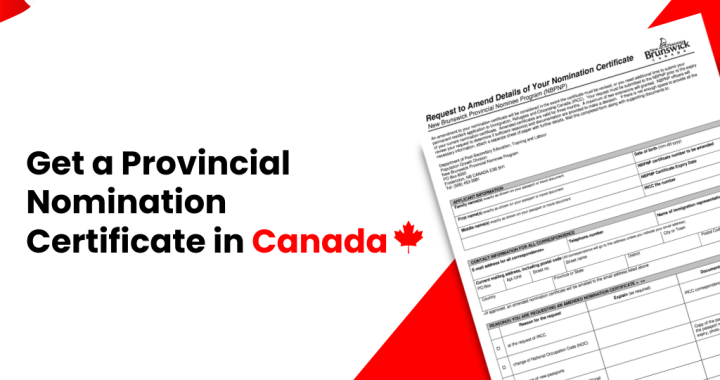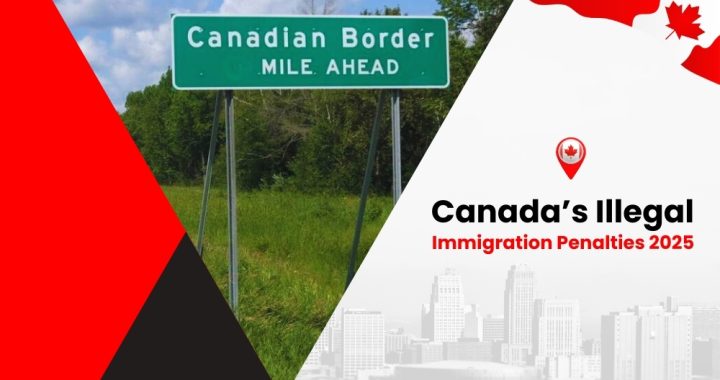
Can US Citizens Work in Canada? Your Complete Guide for 2025? The answer is yes, but the process involves specific legal processes and eligibility criteria. U.S. citizens can work in Canada under various programs, including the Canada-United States-Mexico Agreement (CUSMA), which facilitates temporary entry for professionals, investors, traders, and intra-company transferees without requiring a Labour Market Impact Assessment (LMIA).
Additionally, U.S. citizens may apply for work permits such as employer-specific or open permits, depending on their circumstances.
Here in below, on the subject “Can US Citizens Work in Canada? Your Complete Guide for 2025?” we answer common queries for those seeking US to Canada cross-border career advancement.
US Professionals in Canada: Your Guide to Working in Canada as a US Citizen
“Can I work in Canada?” is a question that often rings in the minds of Americans seeking new career horizons. However, there are certain questions about working in Canada as a US citizen, ranging from job opportunities to visa requirements. US Professionals in Canada: Your Guide to Working in Canada as a US Citizen covers everything you need to know to make your Canadian work dream a reality in 2025.
Exploring Work Opportunities in Canada for American Citizens
Canada’s job market offers a wealth of opportunities for US citizens. Key industries are actively seeking skilled workers, including:
- Technology: Tech hubs like Toronto, Vancouver, and Montreal need software developers, AI specialists, and IT professionals.
- Healthcare: Nurses, physicians, and therapists are in demand, particularly in underserved regions.
- Engineering: Civil, mechanical, and green energy engineers are crucial for Canada’s infrastructure and sustainability goals.
- Skilled Trades: Electricians, carpenters, and plumbers thrive in Canada’s construction sector.
Programs like the Global Talent Stream fast-track work permits for high-demand roles make it easier for Americans to secure jobs in these fields.
Why do US Citizens Consider Working in Canada? Here are some top reasons:
- Competitive Salaries: Certain sectors, like tech and healthcare, offer lucrative pay, sometimes with a lower cost of living than US cities like New York or San Francisco.
- Work-Life Balance: Canada prioritizes employee well-being with generous leave policies and shorter workweeks.
- Universal Healthcare: Free access to medical care is a game-changer for many US citizens.
- Cultural Familiarity: Sharing a language and similar traditions, Canada feels like a home away from home.
- Proximity: Easy travel options keep you connected to family and friends in the US.
For many U.S. citizens, Canada represents a fresh start with tangible benefits.
Do US Citizens Need a Visa to Enter Canada?
Here’s the good news: US citizens don’t need a visa to enter Canada for short visits, such as tourism or business trips. You’ll just need:
- A valid US passport.
- An Electronic Travel Authorization (eTA) if arriving by air (though US citizens are typically exempt).
However, working in Canada requires more than just entry. While you can cross the border as a visitor, you’ll need specific authorization, like a work permit, to legally earn a paycheck.
Can American Citizens Work in Canada Without a Work Permit?
Generally, no US citizens need a work permit to work in Canada. But there are exceptions under the United States-Mexico-Canada Agreement (USMCA):
- Business Visitors: For short-term tasks like meetings or training, no permit is needed.
- Intra-Company Transferees: If your US employer transfers you to a Canadian branch.
- USMCA Professionals: Certain roles (e.g., engineers, accountants) can work temporarily without a permit if listed under the agreement.
For most jobs, though, a work permit is a must.
To work legally in Canada, US citizens have several options:
- Temporary Work Permit: Linked to a specific job and employer, often requiring a Labour Market Impact Assessment (LMIA).
- International Experience Canada (IEC): Open work permits for ages 18-35, perfect for young professionals seeking flexibility.
- Express Entry: A points-based system for permanent residency, ideal for long-term plans.
- Provincial Nominee Programs (PNPs): Province-specific pathways to permanent residency based on local job needs.
Great news for US applicants! Looking ahead to 2025, Canada is likely to expand immigration targets, especially for skilled workers in tech, healthcare, and renewable energy
Step-by-Step Process: How US Citizens Can Work in Canada
- Land a Job Offer: Secure a position with a Canadian employer willing to support your application.
- Get an LMIA (if required): Your employer proves no Canadian can fill the role—some jobs are LMIA-exempt.
- Apply for the Work Permit: Submit your application online or at a port of entry with:
- Passport
- Job offer letter
- Proof of qualifications
- Medical exam
- Biometrics (If Required): You may be required to provide biometrics (fingerprints and photo).
- Processing Time: Expect 2-6 months in 2025.
- Start Working: Once approved, head to Canada and begin your job.
Likely Reasons Why a Us National’s Application to Work in Canada Can Get Rejected
- Inadmissibility: Applicant could be found inadmissible for various reasons, including security concerns, human rights violations, criminal activity, or health issues.
- Lack of Genuine Employment Offer: IRCC (Immigration, Refugees and Citizenship Canada) may reject an application if it believes the employment offer from the Canadian firm is not legitimate.
- Non-Compliance: Failure to meet the requirements or provide necessary documentation can lead to a refusal.
- Misrepresentation: Providing false or misleading information in your application is grounds for refusal.
- Previous Visa Refusals: A previous visa refusal in Canada or another country can affect your application.
- Not meeting the requirements for the specific program: Ensure you meet the eligibility criteria for the work permit program you are applying for.
Alternatives for U.S. Citizens to Work in Canada if a Work Permit Isn’t Feasible
Can’t get a work permit? Explore these options:
- Study in Canada: Earn a degree or diploma, then apply for a Post-Graduation Work Permit (PGWP).
- Start-Up Visa: Launch a business in Canada with this entrepreneur-friendly program.
- Spousal Sponsorship: If your partner is Canadian, they can sponsor you for permanent residency.
- Remote Work: Live in Canada as a visitor while working for a US employer (consult a tax expert first).
Living and Working in Canada: Here’s what life in Canada looks like:
- Housing: Affordable in smaller cities, though pricier in places like Toronto.
- Healthcare: Work permit holders often qualify for provincial coverage.
- Taxes: Higher than in the US, but they fund social benefits.
- Culture: Collaborative workplaces with a focus on inclusivity.
- Climate: Mild summers, cold winters—pack accordingly!
Adapting to Canada is smoother for Americans thanks to shared cultural roots.
Potential Policy Changes to Watch in 2025
Immigration rules evolve. In 2025, keep an eye on:
- Tech and Green Jobs: Expanded programs for skilled workers in these fields.
- USMCA Updates: Possible tweaks to professional work exemptions.
- Permanent Residency Targets: Canada may increase quotas, easing transitions for US citizens.
Frequently Asked Questions
What types of jobs can US citizens apply for in Canada?
US citizens can apply for jobs across various sectors, including technology, healthcare, engineering, and hospitality.
How long does it take to get a work permit?
Processing times can vary, but generally take several weeks to month,s depending on the type of permit and completeness of your application.
How long is a Canadian work permit valid?
Typically 1-3 years, tied to your job offer, with renewal options.
Can my family come with me?
Yes—spouses may get open work permits, and kids can attend school.
Will I pay taxes in both countries?
You’ll file US taxes globally, but the US-Canada tax treaty prevents double taxation.
What if my permit expires?
Extend it, switch visa types, or leave—overstaying risks future entry.
Can I become a permanent resident?
Work experience in Canada boosts your Express Entry score.
What are the language requirements?
Most positions will require proof of proficiency in English or French through standardized tests like IELTS or CELPIP.
Your Next Steps to Working in Canada
So, can US citizens work in Canada? Yes, with the right permits and planning! Whether you’re chasing a tech gig in Vancouver or a healthcare role in Alberta, Canada’s doors are open to American talent in 2025. Start by exploring job boards, consulting immigration experts, and reviewing the latest policies.

 How to Get a Provincial Nomination Certificate in Canada
How to Get a Provincial Nomination Certificate in Canada  How to Convert a Visitor Visa to a Work Permit in Canada
How to Convert a Visitor Visa to a Work Permit in Canada  Canada’s Illegal Immigration Penalties 2025
Canada’s Illegal Immigration Penalties 2025  Canada Immigration Rules 2025
Canada Immigration Rules 2025  PR Card Renewal in Canada: Steps, Fees & Eligibility
PR Card Renewal in Canada: Steps, Fees & Eligibility  How to Write an Support Letter for Immigration Canada
How to Write an Support Letter for Immigration Canada  Can Americans Work in Canada?
Can Americans Work in Canada?